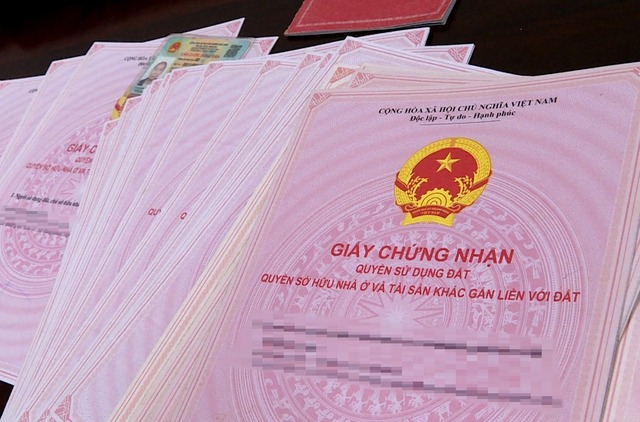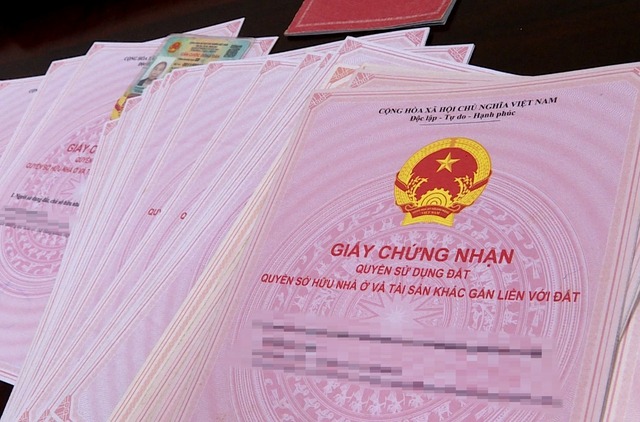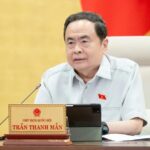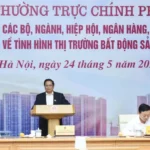
Illustrative image
According to Resolution 60, the Central Executive Committee agreed on the policy of organizing a two-tier local government system comprising the provincial level (provinces and centrally-run cities) and the communal level (communes, wards, and direct districts under provinces and cities).
The district-level administrative units will cease to exist from July 1st, following the enactment of the Resolution amending and supplementing several articles of the 2013 Constitution and the 2025 Law on Local Government Organization (amended).
Currently, people are accustomed to obtaining land-use right certificates (including first-time issuance and registration of changes) at the district level. Therefore, starting from July, when there will no longer be district-level governments, many people are concerned about obtaining new certificates or transferring land-use rights.
According to the draft Decree on decentralization and delineation of authority in the field of land, the Ministry of Agriculture and Environment proposes that the People’s Committee at the communal level be authorized to issue land-use right certificates for the first time.
The draft decree also shortens the procedure for handling procedures by transferring some authority from the district to the commune level, such as allocating residential land to individuals and implementing some land registration steps.
In addition, it is proposed that the People’s Committee at the commune level does not need to confirm additional conditions such as compliance with planning, dispute status, or stable land use period in some procedures for granting certificates – these are contents that the commune level has implemented and are recognized by law.
The Ministry also proposed clarifying the competence of the People’s Councils, People’s Committees, Chairpersons of People’s Committees, and specialized agencies at the commune level in land management – transferring some tasks originally performed by the district level. However, for specific types of land such as ponds, lakes, and marshes that span multiple communes, management remains under the People’s Committee at the provincial level (according to Article 188).
Regarding registration procedures for changes such as transfer, donation, inheritance, mortgage, and information changes, they will be handled by the provincial Land Registration Office and its branches.
When necessary, people can prepare a full set of documents and choose from several submission methods: online submission through the Public Service Portal, direct submission at the one-door division of the provincial or communal level, or submission via postal services.
To ensure the timely completion of a comprehensive and synchronized legal framework for the operation of the two-tier local government model from July 1, 2025, the Prime Minister requested that ministers and heads of ministerial agencies urgently finalize the draft decrees on decentralization, devolution, and delineation of authority according to the sectors and fields managed by their respective ministries; the deadline for submission to the government is June 10, 2025.
The Deputy Prime Ministers are assigned to carefully review and approve the draft decrees on decentralization, devolution, and delineation of authority before submitting them to Deputy Prime Minister Nguyen Hoa Binh for signing and issuance; the deadline for completion is June 12, 2025.
“Halting Residential Land-Use Conversion in Haiphong: Empowering Households and Individuals”
In recent times, Hai Phong city has witnessed instances of land-use conversion that contravene regulations, particularly during the period of provincial integration, social reorganization, and dissolution of the district-level government. As a result, the city has imposed a temporary halt on accepting and processing applications for land-use conversion, aiming to rectify these irregularities and ensure adherence to established guidelines.
“Parliament Speaker: Decentralization Must Be Monitored to Prevent Provincial-Level Autonomy”
“President of the National Assembly Tran Thanh Man emphasized the importance of decentralization and delegation of power to the provincial level in urban planning.”





















